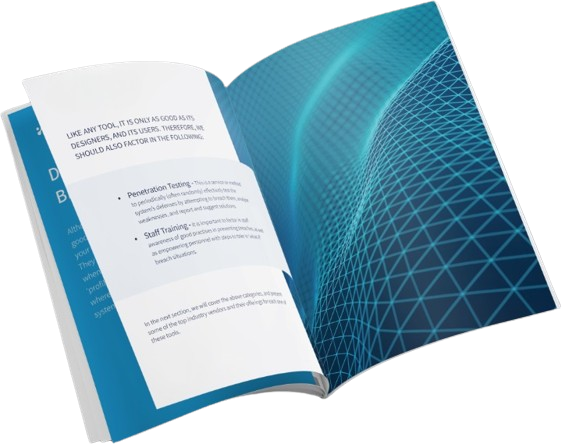Are you struggling to find the perfect financing option to take your small business to the next level? Look no further. Term loans offer a smart and strategic way to secure the funding you need.
With a range of benefits and tailored solutions, term loans could be the game-changer for your business. But how do they work, and what advantages do they offer?
Let’s explore how term loans can provide the financial boost your small business needs to thrive in today’s competitive market.
Key Takeaways
- Term loans are a viable financing option for small businesses, offering predictable monthly payments and lower interest rates compared to short-term loans or lines of credit.
- To qualify for a term loan, businesses need to have a strong credit history, consistent revenue streams, and meet certain eligibility criteria such as minimum credit score and annual revenue requirements.
- It is important to thoroughly research and compare lenders to find the best terms and interest rates for a term loan.
- Managing term loan repayments and cash flow effectively is crucial, and businesses should consider factors such as repayment schedules, early repayment benefits, and cash flow optimization strategies.
Understanding Term Loans
Understanding term loans is essential for small business owners seeking long-term financing solutions to support their growth and expansion. When considering term loans, it’s crucial to understand the eligibility criteria and the application process.
Term loan eligibility criteria typically include factors such as the creditworthiness of the business, its revenue and cash flow, and the business’s ability to repay the loan. Lenders may also consider the business’s industry, time in operation, and any collateral that can be offered to secure the loan.
The term loan application process generally involves submitting an application to the lender, providing necessary documentation such as financial statements, tax returns, and business plans, and undergoing a thorough underwriting process. Lenders will assess the business’s financial health, credit history, and overall ability to repay the loan. It’s important for small business owners to be prepared to demonstrate their business’s stability, growth potential, and ability to manage debt responsibly.
Understanding these key aspects of term loans can help small business owners navigate the financing process more effectively. By being aware of the eligibility criteria and the application process, business owners can better position themselves to secure the long-term financing they need to invest in their growth and achieve their expansion goals.
Advantages of Term Loans
As a small business owner seeking long-term financing solutions, you can benefit from understanding the advantages of term loans and how they can support your growth and expansion goals.
Term loans offer several key benefits for small businesses. Firstly, they provide predictable monthly payments, making it easier to budget and manage cash flow effectively. This stability is particularly valuable when compared to short-term loans or lines of credit, which may have fluctuating payment terms. Additionally, long-term loans often come with lower interest rates, reducing the overall cost of borrowing and potentially saving your business money in the long run.
Moreover, term loans typically have a straightforward application process, allowing you to secure funding relatively quickly compared to other financing options. Once approved, the funds can be used for a wide range of purposes, such as purchasing equipment, expanding operations, or investing in marketing initiatives. This flexibility makes term loans a versatile financial tool for supporting various aspects of your business’s growth strategy.
Furthermore, by opting for a long-term loan, you can establish a positive credit history for your business, which may improve your eligibility for future financing. Timely repayment of a term loan demonstrates financial responsibility and can enhance your business’s creditworthiness, potentially opening doors to additional funding opportunities in the future.
Qualifying for Term Loans
To qualify for term loans, small businesses must demonstrate a strong credit history and consistent revenue streams to support loan repayment. Term loan eligibility typically requires a minimum credit score of 680, although some lenders may consider scores as low as 600. Lenders also evaluate the business’s annual revenue, with most requiring at least $100,000 in annual revenue. Additionally, they assess the business’s profitability and cash flow to ensure it can manage the debt service associated with the loan.
Meeting term loan requirements involves providing comprehensive documentation, including financial statements, tax returns, bank statements, and business plans. Lenders use this information to assess the business’s financial health and its ability to repay the loan. Moreover, they may require collateral to secure the loan, which could include business assets, equipment, or real estate. Some lenders may also consider the business owner’s personal credit history and financial standing when evaluating term loan applications.
Furthermore, a strong business plan outlining how the loan funds will be used and how they’ll contribute to the business’s growth can strengthen the application. Demonstrating a clear understanding of the market, competition, and potential for future revenue growth can positively influence term loan eligibility.
Applying for Term Loans
When applying for term loans, small businesses are required to provide comprehensive documentation demonstrating their financial health and ability to manage loan repayment. To increase your chances of a successful application, consider the following tips.
First, ensure that your business financials are in order. Lenders typically require financial statements, tax returns, and cash flow projections to assess your ability to repay the loan. It’s essential to have accurate and up-to-date financial records to present a clear picture of your business’s financial health.
Additionally, be prepared to offer collateral, as term loans often require some form of security. Collateral provides assurance to the lender and can positively impact your loan terms and interest rates. On the flip side, one of the potential drawbacks of term loans is the need for collateral, as it puts your assets at risk if you’re unable to repay the loan. Therefore, carefully evaluate your ability to meet the collateral requirements before applying for a term loan.
Lastly, thoroughly research and compare different lenders to find the best terms and interest rates that align with your business’s needs and financial situation. By weighing the pros and cons of term loans and following these tips, you can navigate the application process more effectively and improve your chances of securing the financing your business requires.
Choosing the Right Term Loan
When choosing the right term loan for your small business, consider the flexibility of the loan term and the interest rates offered. A loan with flexible terms can provide you with the necessary breathing room to manage your cash flow effectively.
Comparing interest rates can help you secure a loan with the most favorable terms. Evaluating these two key points will ensure that you select a term loan that aligns with your business’s financial needs and goals.
Loan Term Flexibility
With a range of financing products available, small businesses can benefit from the flexibility of choosing the right term loan that aligns with their specific financial needs and goals. When considering loan term flexibility and term loan repayment options, it’s crucial to analyze the following factors:
- Repayment Period: Assess the various repayment periods offered, ranging from short-term to long-term options, to find the most suitable one for your business’s cash flow.
- Interest Rates: Compare fixed and variable interest rate options to determine which aligns best with your financial strategy and risk tolerance.
- Prepayment Penalties: Evaluate if there are penalties for paying off the loan early, as this can impact your overall cost.
- Flexibility Terms: Look for loan products that offer flexibility in terms of repayment schedules and the ability to adjust payment amounts based on your business’s performance.
Interest Rate Comparison
To select the most advantageous term loan for your small business, it’s essential to conduct a comprehensive comparison of interest rates offered by various lenders. When comparing interest rates, consider factors such as the annual percentage rate (APR), the impact of fixed or variable rates, and any additional fees or charges.
The APR provides a holistic view of the total borrowing cost, including both the interest rate and any applicable fees. Additionally, understanding the difference between fixed and variable rates is crucial. Fixed rates offer stability and predictability, while variable rates may fluctuate with market conditions.
Take into account any origination fees, prepayment penalties, or other charges that can affect the overall cost of the loan. By carefully analyzing these interest rate factors, you can make an informed decision when comparing term loan options.
Managing Term Loan Repayments
When managing term loan repayments, it’s important to consider your repayment schedule to ensure you stay on track and avoid any penalties.
Managing cash flow effectively can help you meet your repayment obligations without impacting your day-to-day business operations.
Additionally, understanding the benefits of early repayment can potentially save you money on interest and improve your overall financial position.
Repayment Schedule Tips
Understanding the importance of a well-structured repayment schedule is crucial for effectively managing term loan repayments for your small business. When it comes to repayment schedule management and cash flow optimization, consider the following tips:
- Forecast Cash Flow: Utilize cash flow projections to anticipate peaks and troughs in revenue, allowing for better planning of loan repayments.
- Match Payment Frequency to Cash Flow: Align repayment dates with your business’s cash inflows, ensuring that you have sufficient funds available when payments are due.
- Leverage Grace Periods: Take advantage of any grace periods offered by lenders to accommodate fluctuations in cash flow and avoid late fees.
- Automate Repayments: Set up automatic payments to streamline the repayment process and avoid missed deadlines, supporting better cash flow management.
Managing Cash Flow
Consider leveraging cash flow projections to effectively manage term loan repayments for your small business, ensuring optimal financial planning.
Cash flow management is crucial for meeting term loan obligations. Start by creating detailed cash flow forecasts, analyzing expected inflows and outflows to identify potential shortfalls. This proactive approach allows for early intervention, such as negotiating extended payment terms with suppliers or seeking additional financing if necessary.
By monitoring cash flow regularly, you can anticipate any challenges in meeting loan repayments and take preemptive measures. Additionally, optimizing your cash conversion cycle, streamlining accounts receivable, and managing inventory levels can positively impact cash flow, providing more liquidity for loan repayments.
Ultimately, robust cash flow forecasting and management are essential for successfully handling term loan repayments and maintaining financial stability.
Early Repayment Benefits
To maximize the benefits of managing term loan repayments, early repayment can offer significant cost savings and strategic advantages for your small business. Consider these key reasons why prepaying your loan can be beneficial:
- Interest Savings: Early repayment can reduce the total interest paid over the life of the loan.
- Improved Credit Score: Paying off the loan early can positively impact your credit score and financial reputation.
- Flexibility for Future Borrowing: Early repayment can enhance your eligibility for future financing and better terms.
- Faster Debt-free Status: By prepaying the loan, you can achieve debt-free status sooner and allocate funds to other business needs.
Understanding the early repayment incentives and benefits of prepaying loans can help you make informed decisions to optimize your small business’s financial position.
Term Loan Interest Rates
When exploring term loan interest rates for small businesses, it’s crucial to assess the impact of the rates on your overall financial strategy. The interest rate on a term loan can significantly affect your monthly payments and the total cost of borrowing. Understanding the factors influencing these rates is essential for making informed financial decisions.
Term loan interest rates are influenced by various factors, including the loan amount, repayment term, creditworthiness of the borrower, and prevailing market conditions. Lenders consider the risk associated with the loan, and businesses with strong credit profiles typically qualify for lower interest rates. Additionally, the repayment options chosen for the term loan can also impact the interest rate. For instance, loans with shorter repayment terms often come with lower interest rates compared to longer-term loans.
It’s important to carefully evaluate the available term loan repayment options. While longer repayment terms may offer lower monthly payments, they often result in higher overall interest costs. On the other hand, shorter repayment terms may lead to higher monthly payments but lower total interest expenses.
Furthermore, staying informed about current market conditions and interest rate trends is essential. Economic factors, such as inflation, monetary policy, and the overall state of the economy, can influence interest rates. Keeping an eye on these factors can help you anticipate potential changes in term loan interest rates and make proactive financial decisions for your small business.
Term Loans Vs. Other Financing Options
Exploring term loans interest rates for small businesses sheds light on the critical differences between term loans and other financing options, allowing for a more informed assessment of the most suitable financial strategy for your business.
When comparing term loans to other financing options, it’s essential to consider the following:
- Term Loans vs. Revolving Credit:
- Term loans provide a lump sum upfront, while revolving credit offers a credit line that can be used repeatedly.
- Term loans often have fixed interest rates and structured repayment schedules, whereas revolving credit typically has variable rates and more flexible repayment terms.
- Term Loans vs. Merchant Cash Advances:
- Term loans involve borrowing a fixed amount and repaying it over a set term, including interest, while merchant cash advances provide a lump sum in exchange for a percentage of future credit card sales.
- Term loans may have lower overall costs compared to merchant cash advances, especially for businesses with strong credit profiles.
When considering term loans against other financing options, it’s crucial to assess the specific needs and financial circumstances of your business. Conducting a thorough analysis of the terms, costs, and repayment structures of each option will enable you to make an informed decision that aligns with your business goals and cash flow requirements.
Term Loan Success Stories
Several small businesses have thrived and expanded their operations through strategic utilization of term loans. These success stories highlight the tangible benefits of term loans for small businesses.
For instance, a term loan case study involving a local bakery illustrates how a $50,000 term loan was used to purchase new baking equipment, leading to a 30% increase in production capacity and a 25% boost in revenue within the first year. Similarly, a retail clothing store utilized a term loan of $100,000 to renovate its premises, resulting in a 20% rise in foot traffic and a 15% growth in sales.[1] These instances showcase the significant impact that term loans can have on small businesses, providing the necessary capital for growth and expansion.
The benefits of term loans are clearly evident in these case studies. Firstly, term loans offer fixed interest rates and predictable monthly payments, allowing businesses to effectively budget and manage cash flow. Additionally, the ability to secure a lump sum of capital enables businesses to make substantial investments in assets or operations, leading to tangible growth.
Moreover, term loans provide longer repayment periods compared to other financing options, reducing the financial strain on businesses and allowing for a more sustainable expansion.
Frequently Asked Questions
What Are the Common Mistakes Small Businesses Make When Applying for Term Loans?
Applying for term loans can be tricky for small businesses. Common mistakes include incomplete applications and not understanding eligibility requirements. Improve your chances by building credit and ensuring a thorough application process.
Knowing the pitfalls can help you navigate the application process more effectively. Keep in mind that building a strong credit history and understanding the application process are crucial for successful term loan applications.
How Can Small Businesses Improve Their Credit Score to Qualify for Better Term Loan Options?
Improving your credit score requires strategic financial planning.
Start by paying bills on time and reducing credit card balances.
Regularly check your credit report for errors and keep credit utilization low.
Establish a good payment history and avoid opening multiple new accounts at once.
Consistent positive financial behavior will gradually improve your credit score, qualifying you for better term loan options.
Understanding the impact of these actions on your credit score is crucial for successful financial planning.
What Are Some Alternative Collateral Options for Small Businesses Seeking Term Loans?
When seeking term loans, small businesses can explore alternative collateral options for creative solutions. These may include inventory, equipment, or accounts receivable. Leveraging these assets can increase your chances of securing financing.
Alternative collateral provides lenders with added security, making your loan application more appealing. By presenting a diverse range of assets, you demonstrate a comprehensive approach, potentially enhancing your access to term loans for small businesses.
What Are the Key Factors That Lenders Consider When Evaluating a Small Business’s Eligibility for a Term Loan?
When evaluating small business eligibility for a term loan, lenders consider factors like credit score, revenue, time in business, and debt-to-income ratio. They want to ensure your ability to repay the loan and assess your business’s financial stability.
Lenders also look at the purpose of the loan and how it aligns with your business plan. Demonstrating a solid financial track record and a clear plan increases your chances of approval.
How Can Small Businesses Negotiate Better Terms and Conditions for Their Term Loans?
When negotiating loan terms, small businesses can employ several strategies to secure better financing options.
Understanding your financial position and having a clear plan is crucial. Highlight your positive business performance and emphasize your ability to repay the loan.
Research the market to compare terms offered by different lenders.
Finally, leverage your existing relationships with lenders to negotiate more favorable loan terms.
These strategies will improve your chances of securing a beneficial loan agreement.
Final Thoughts
Term loans offer small business owners a smart and reliable financing option to grow their business.
With a fast and simple application process, secure funding, and a range of financing products available, term loans provide the support and resources needed to take your business to the next level. So, if you’re ready to make a smart financial decision for your small business, term loans may be the perfect solution for you.



